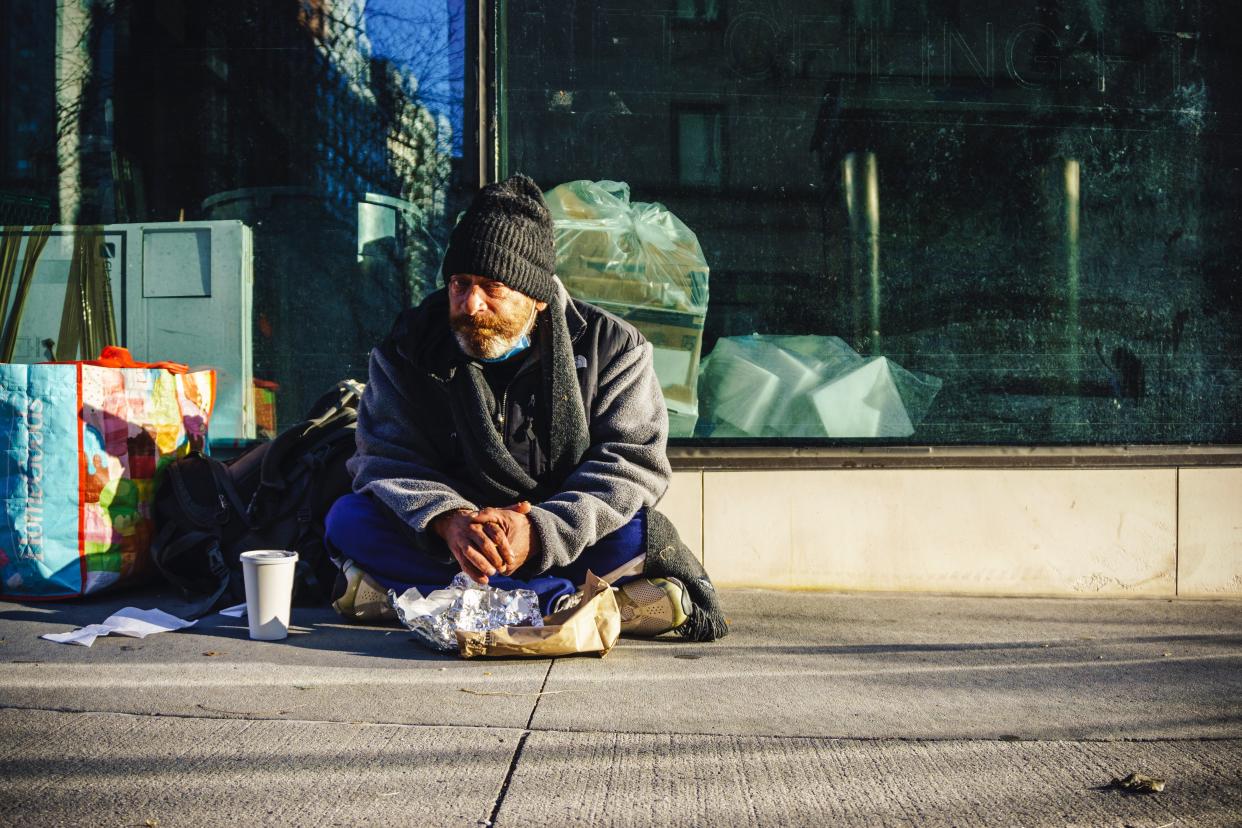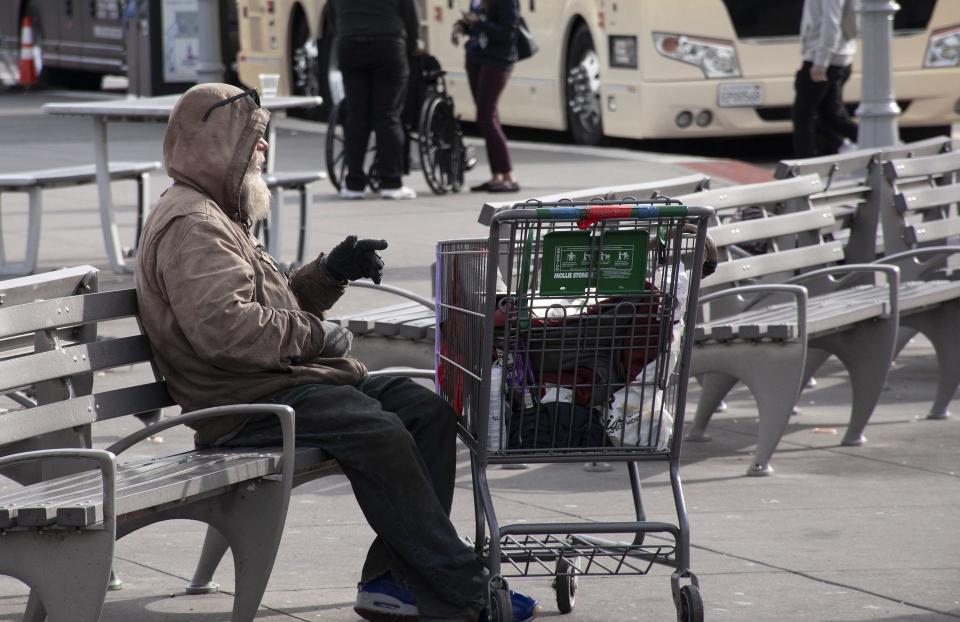The solution to homelessness, Michigan experts say, isn't one-size-fits-all

OTTAWA COUNTY — Even the fastest growing counties in Michigan aren't immune to homelessness. In fact, in parts of the state where population is outpacing affordable housing, the problem can be exacerbated.
But is more housing the answer? Solving the problem is complex — and local leaders often disagree. Depending on who you ask, some blame mental illness. Others turn to addiction, a lack of affordable housing and unemployment rates.
More:Homelessness numbers rise as problem remains largely hidden
More:'Every man carries his own weight': The day-to-day of homelessness in Holland.
According to the U.S. Department of Housing and Urban Development, on any given night in 2022, 582,462 people experienced homelessness.
But locally, it's hard to pinpoint an exact number.
Lyn Raymond, director of the Lakeshore Housing Alliance in Ottawa County along Lake Michigan, measures progress using data from a shared database. When she looks at the last decade, homelessness seems to be decreasing.
“Our numbers have been decreasing annually,” she said. “There may be times during the year when the population is larger, but overall, the numbers have gone down.”
But different organizations have different numbers, based on what data they use and what they're seeing on the ground.
“I think it's important to recognize that it really depends on the time of year and other factors,” Raymond said. “If there are organizations experiencing increases, that's legitimate. I can give an overall number, but these organizations are giving information based on what they're experiencing right now.”
Willie Watt, founder of Lifeline Ministries in Holland, estimated there are over 300 homeless individuals in Holland, with about 215 living in local wooded areas. Watt said the number grows when you add displaced individuals.

He estimates there are about 400 families, around 2,000 people total, considered "displaced" rather than homeless, living with other families or in hotels. Watt said he's found four families living in storage units.
As he sees it, the problem is growing.
Robert Buursma, captain of administrative services for the Holland Department of Public Safety, said — from what he sees and hears from his officers — Watt is right. The numbers are going up.
“I can only speak to that anecdotally, but we’ve seen an increase in the last few years," he said. “I don’t think it’s doubled, but a definite increase.”
Buursma said his officers handle situations involving homelessness, in one form or another, on a daily basis. He said the interactions that most often make the news are those involving the removal of homeless camps, which are usually located on private property and considered trespassing.
“When we become involved, it's because the property owner becomes aware,” Buursma said. “There are times when property owners have let it go, but it becomes a problem later on. ... In general, the homeless just pack up and find another place to set up.”
Buursma said his department works to treat every person they come across with compassion, homeless or otherwise. In September 2022, the department started its Crisis Intervention Team, which helps in complex situations.
“We now have an officer partnered with a clinician from Ottawa County Mental Health, the Ottawa County Sheriff's Office has an officer partnered up, and that's what they do,” Buursma said.
Buursma said having a clinician on the team expands the help they can offer on-scene, better responding to situations that involve mental health.
“Since initiating the team, for our officer and the clinician, we've had 454 different incidents that we've addressed,” Buursma said. “I have a feeling that, if you talked to (OCSO), you would find similar numbers.”
But while resources like the CIT may have a direct impact on helping individuals find resources, some community leaders say it's a temporary fix — people end up back on the street because root issues weren't addressed.
It seems everyone can agree on the multi-faceted nature of homelessness. Holland Mayor Nathan Bocks said conversations are happening behind the scenes, but much of the issue is handled at the county level.
“The conversations are happening locally, but to a lesser extent because of the limits on our powers ... as a city to directly deal with it,” he said. “The City of Holland and Holland City Council, by charter, do not have the ability to provide social services or healthcare services.”
Dr. Scott Klingberg, director of ministry operations for Gateway Mission in Holland, said when leaders talk about homelessness, they shouldn't ask whether they're doing enough — but rather, are they offering real help and real solutions?
Klingberg said one method can't be used to effectively treat all cases of homelessness. He compared it to going to the hospital. If two people enter an emergency room, one with a broken arm and one with abdominal pain, they expect different forms of treatment.
He said the same should go for the homelessness crisis.
“If elected officials don't understand what real help looks like, they'll inadvertently make the problem worse,” Klingberg said. “Real help doesn't foster dependency on government benefits and agency handouts. Although well intentioned — it's misguided compassion.”
Klingberg said the conversation needs to focus on underlying problems. The "invisible poverty" rather than "visible" items like food, clothing and shelter.
That includes poverty of relationships (broken relationships, family disintegration), poverty of truth (not knowing a way out, seeking substances, mental health issues), poverty of identity (not knowing where they belong, connectedness, a sense of value) and the poverty of hope (suicidal, hopeless).
It's not necessarily about affordable housing, Klingberg and Watt agree, even though many municipalities have touted the solution by funding projects.
Subscribe:Get all your breaking news and unlimited access to our local coverage
“All the conversations are centered around housing and adding more vouchers for housing,” Klingberg said. “At what point does the insanity stop? How many free housing vouchers do we have to give away to realize it isn’t working — but rather sweeping the problem under the rug so it's not seen?
“People are compassionately trying to help, but the help is misguided.”
Watt said one reason affordable housing isn't having the positive impact many expected is the additional costs associated with it, like an application fee, first month's rent, last month's rent and a security deposit — plus barriers to approval.

“All the new properties in the area, they aren’t allowing (the) homeless to move in because many have a prior eviction or a conviction,” Watt said. “That's 90 percent of the individuals living in hotels right now.”
Watt believes, to end homelessness, people need access to healthcare and free rehab, a job paying enough to be self-sufficient, reliable transportation, and the help of local organizations joining forces to attack "visible" and "invisible" poverty.
Bocks said he feels the resources are there, but connecting them to people is often a challenge.
“Different organizations that deal with different things that have overlapping missions tend to work very well together in Holland,” he said. “Sometimes it's difficult to get the message out about what resources are available. No matter how hard we try, sometimes the message just isn’t reaching the people it would help most.”
— Contact freelancer Austin Metz at ametz@gannett.com.
This article originally appeared on The Holland Sentinel: The solution to homelessness, Michigan experts say, isn't one-size-fits-all

